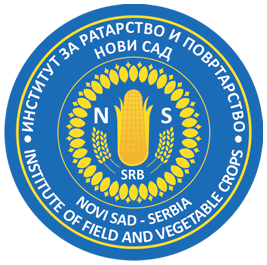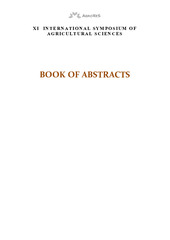Приказ основних података о документу
Induced mutations in cereals breeding
| dc.creator | Kondić-Špika, Ankica | |
| dc.creator | Trkulja, Dragana | |
| dc.creator | Glogovac, Svetlana | |
| dc.creator | Marjanović-Jeromela, Ana | |
| dc.creator | Rajković, Dragana | |
| dc.creator | Miladinović, Dragana | |
| dc.date.accessioned | 2022-06-01T12:34:35Z | |
| dc.date.available | 2022-06-01T12:34:35Z | |
| dc.date.issued | 2022 | |
| dc.identifier.isbn | 978-99938-93-81-3 | |
| dc.identifier.uri | http://fiver.ifvcns.rs/handle/123456789/2793 | |
| dc.description.abstract | Induced mutations are used for the production of mutant varieties with altered plant characteristics, which result in a significant increase in production and / or improvement in quality. The resulting mutants have contributed to overcoming numerous obstacles in plant breeding and creating new and valuable forms, such as e.g. semi-dwarf wheat varieties, early maturing, disease resistance, etc. The application of induced mutations was widely spread between the 1950s and 1980s, and great successes have been made in creating mutated varieties. The early years of the 21st century have witnessed a return of induced mutation technologies due to a better understanding of mutagenesis and related disciplines, leading to a number of different applications. The economic value of this technology has been proven by the fact that more than 3,300 mutant varieties of different plant species have been created in the world so far, including 291 varieties of bread wheat and 316 varieties of barley. Using this technology, only one variety of paprika (Capsicum annuum L.) was registered in Serbia - Horgoška slatka -X-3 in 1974. Since that time, there have been no examples of successful mutation use in crop varieties creation in Serbia. | sr |
| dc.language.iso | en | sr |
| dc.publisher | Banja Luka : University of Banja Luka, Faculty of Agriculture | sr |
| dc.relation | info:eu-repo/grantAgreement/MESTD/inst-2020/200032/RS// | sr |
| dc.relation | IAEA project RER5024: Enhancing Productivity and Resilience to Climate Change of Major Food Crops in Europe and Central Asia | sr |
| dc.relation | Climate Crops - Centre of Excellence for Innovations in Breeding of Climate-Resilient Crops, Institute of Field and Vegetable Crops | |
| dc.rights | openAccess | sr |
| dc.rights.uri | https://creativecommons.org/licenses/by/4.0/ | |
| dc.source | Book of Abstracts, 11th International Symposium of Agricultural Sciences “AgroReS 2022", 26-28 May 2022, Trebinje, Bosnia and Herzegovina | sr |
| dc.subject | mutational breeding | sr |
| dc.subject | barley | sr |
| dc.subject | wheat | sr |
| dc.subject | improved characteristics | sr |
| dc.subject | climate change | sr |
| dc.title | Induced mutations in cereals breeding | sr |
| dc.type | conferenceObject | sr |
| dc.rights.license | BY | sr |
| dc.citation.epage | 70 | |
| dc.citation.spage | 69 | |
| dc.identifier.fulltext | http://fiver.ifvcns.rs/bitstream/id/7740/aks.pdf | |
| dc.identifier.rcub | https://hdl.handle.net/21.15107/rcub_fiver_2793 | |
| dc.type.version | publishedVersion | sr |


